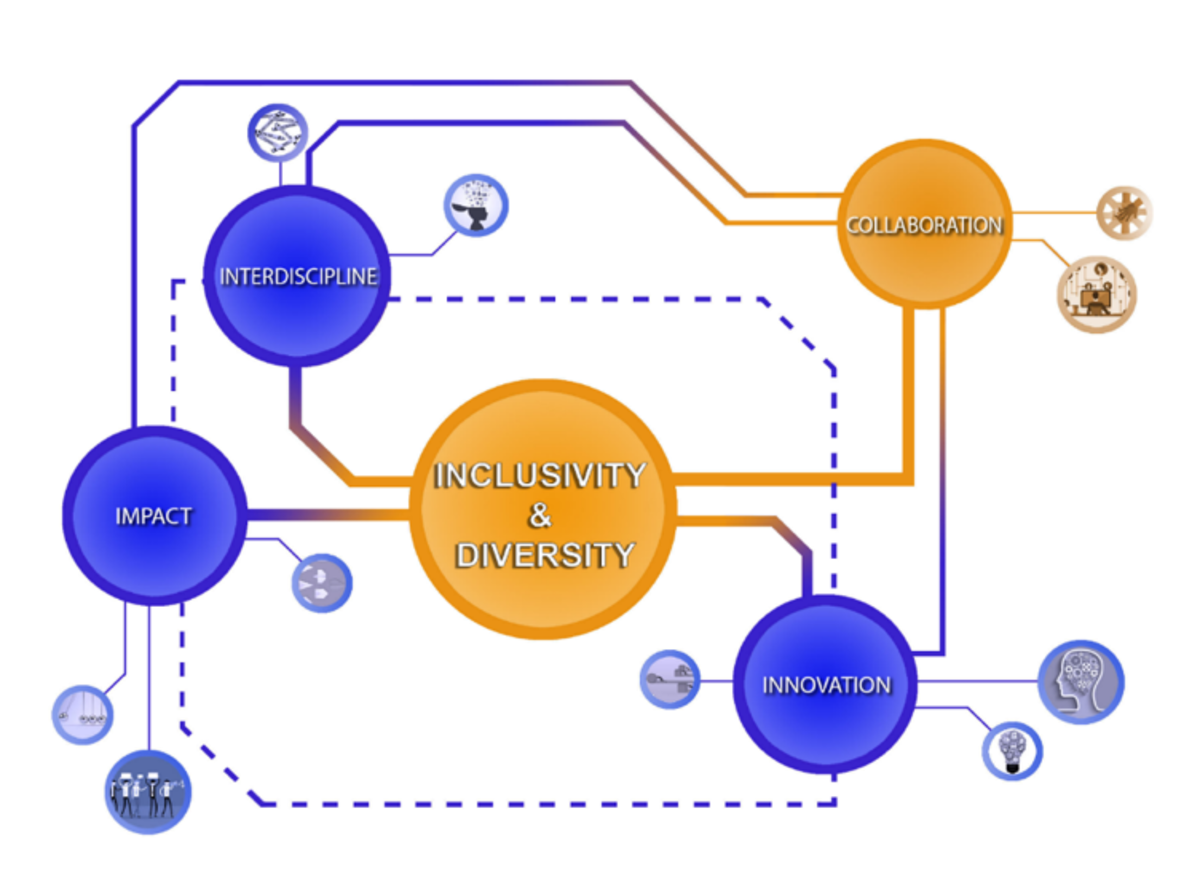How Min Song of Stevens Department of Electrical and Computer Engineering plans to create a world-class department
"We aim to build a top 50 department."
Those are the words of Min Song, professor and chair of the Department of Electrical and Computer Engineering (ECE) at Stevens Institute of Technology.
Song joined Stevens on July 1, 2018. As an internationally renowned scholar in the fields of wireless communication networks, cyber physical systems, mobile computing and network security, Song is making it his mission to use his expertise to create a top ranked department.
Song has identified five elements to becoming a world-class department:
Innovation
Interdiscipline
Impact
Collaboration
Inclusivity and Diversity
"I call it I3CID. All five elements are connected and support each other," Song says. "The three I’s are the guiding principles for both research and teaching, with collaboration as the pivotal element. The ID represents the people—the core value of ECE."
Song identifies two key areas to focus on: student education and the research enterprise.
"The research being conducted in the department is already very impressive," Song says. "These research areas include projects aimed at developing sensors that monitor heart conditions with greater ease and efficiency, using artificial intelligence to detect fake voices, developing autonomous robotics systems to assist older adults to independently live in their own homes and interact with their communities, and employing wireless communication signals to illuminate opportunities to detect, locate and track objects of interest."
"My goal is to strengthen the research culture to continue creating impressive research."
Song wants to do that by collaborating with all ECE members, increasing the number of submitted proposals to seek more funds, partnering with world-class departments and industry partners, and consolidating research resources to build the department’s identity.
Another fundamental aspect of Song’s vision is ECE’s role in preparing students for success after graduation. He firmly believes that the department’s growth is reflected in this ability, given the constantly changing world of technology. "Our students are very dedicated and driven," Song says, "and we want to make sure we give them as many opportunities to succeed as possible. To that end, ECE prepares students to discover, create and apply knowledge in electrical and computer engineering through innovative and collaborative research and education programs."
He cites maintaining and enhancing the rigorous and innovative curriculum by updating and initiating new programs as needed, providing more resources to enhance students’ learning experiences, exploring a variety of funding opportunities to support more research assistant Ph.D. students, and supporting innovative teaching pedagogies.
Song also identifies additional opportunities for ECE to grow its identity. One such area is the strengthening of the computer engineering program. "We need to provide more resources to promote the research and teaching in computer hardware, smart and automated systems, artificial intelligence, data engineering and other increasingly relevant and important topics," Song says. He is also working with ECE to streamline operations and management, foster an even more inclusive and diverse work environment, and engage with external stakeholders to seek funds for creating endowed positions.
"This plan sounds ambitious—and it is," Song says. "I do not think we can do all of this in one day. But I truly believe that by focusing on I3CID and working collaboratively on all levels, the Department of Electrical and Computer Engineering will become a top 50 department."
Before joining Stevens, Song was a David House professor, chair of the computer science department and professor of electrical and computer engineering at Michigan Tech from 2014 to 2018. He was also the founding director of the Michigan Tech Institute of Computing and Cybersystems. Prior to joining Michigan Tech, Song served as program director with the National Science Foundation (NSF) from 2010 to 2014, where he managed ten programs in the field of computer and information science and engineering and provided oversight for over $80 million in funding for wireless research, education and infrastructure projects. He received the NSF Director's Award in 2012 for the successful launch of groundbreaking international initiatives.
His current research interests are in the areas of cognitive radio networks, Internet of Things, mobile computing, network security, artificial intelligence, and wireless communication networks. Over the course of his career, Song has published more than 160 technical papers and held various leadership positions. He also served as the IEEE Communications Society director of conference operations, member of the board of governors (2016-2017) and as journal editor and conference chair on several initiatives. Song was the recipient of NSF CAREER award in 2007. He is an IEEE Fellow.


